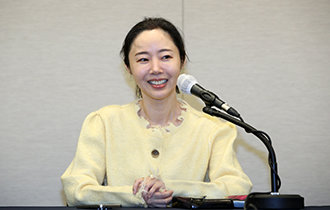[Opinion] Busans Political Clout
American presidents often appoint officials from their region. Former President Jimmy Carter, who started out as a peanut farm owner in Georgia, used to say, Anyone who learns studiously can become a professional, and seated Team Georgia--his election campaign staff--in the most important White House positions. Former President Ronald Reagan, however, appointed the most qualified and experienced personnel, no matter where they came from. He even chose James Baker as White House Chief of Staff, without regard to the fact that he was chief advisor to his rival George Bush. Politics professors label Carter as an amateur president, and Reagan as a skilled employer.
Despite President Roh Moo-hyuns emphasis on fair appointments from the beginning of his tenure, officials from Busan and Gyeongnam areas have been gaining ground. According to a survey by a press organization, 59 (19.6 percent) of 302 first rank or higher Blue House and central government officials are from these regions as of February 2006. Last year, of the 82 high-ranking government and affiliated organization officials that the president appointed, 30 percent, or 26 of them, were from these regions. Important positions at the finance sector often go to people from these regions. These officials like to sing the song Busan Seagull during parties.
Former Senior Secretary to the President for Civil Affairs Moon Jae-in, who goes by the nickname King Senior Secretary said during a press conference two days ago, The president is from Busan. I do not understand why Busan citizens do not accept Busan political power. His dissatisfaction stems from the fact that candidates from the ruling party have not been doing well in elections, even though the party did various favors for this region: holding the Asia-Pacific Economic Cooperation summit meeting in Busan, development in these regions, and favorable appointments. The lack of support in Busan reflects how the whole nation feels about the government and ruling partys poor governance.
Dong-A Ilbos survey in March revealed that President Rohs approval rating in the whole nation is at 37.5 percent, while it is 37.6 percent in Busan. Amateurism and poor performance of Roh administration, together with chord politics, have failed to win support in Busan. When suggestions emerged within the party last year that it should merge with the Democratic Party, President Roh refused this by saying that it goes against the original goal of overcoming regional feelings. If the Busan political power speech was an attempt to ignite regional feelings, it is not only contradictory, but is an insult to the Busan people.
Lee Dong-kwan, Editorial Writer, dklee@donga.com







